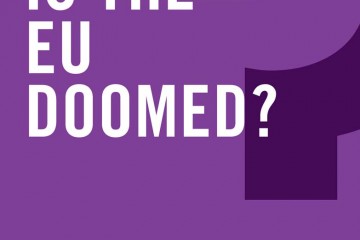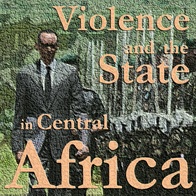
Forecasting elections with social media? Yes, we can. Almost…
With the failure of traditional forecasting methods to accurately predict the outcomes of the UK General Election of May 2015, can social media based predictions do any better? In this article, Andrea Ceron, Luigi Curini, and Stafano M. Iacus (University of Milan and VOICES from the Blogs) find that supervised and aggregated sentiment analysis (SASA) applied in proportional electoral systems produces the most accurate forecasts of election results.

Democracy for our Digital Future (Part III): The public realm, parties and the future of campaigning
The gathering heard from the historian David Marquand whose latest book Mammon’s Kingdom explores the history and values of the public realm and its relationship to democracy. The public realm is an elusive term, noted Marquand, which denotes a sphere of human life that is not the market, but not the private realm of family and friendship either. It is the belief that we are mutually inter-dependent, with perhaps the best definition given by John Donne when he noted that ‘No man is an island, entire of himself’. The public realm includes the public sector, but is not reducible to it. It is also the realm of our rights and responsibilities, which includes universal human rights, but also certain British …

Six reasons why the UK parliament should have youth quotas
Young people are disadvantaged economically yet politically marginalised and demonised. Are youth quotas in parliament part of the answer? It is now widely acknowledged that young generations are faring particularly badly in Britain.[i] There is growing concern for a ‘jilted generation’ burdened with debts and structural unemployment. In 1992, the unemployment rate of the young was twice as high as for the rest of the population; two decades later, it is up to four times higher.[ii] Even when they do have jobs, young people are disproportionately likely to be in precarious positions such as zero-hour contracts, temporary contracts and unpaid internships. Despite this context of job scarcity and the structural precariousness they have to face, the young are often regarded …

Politics as usual: women, media and the UK general election 2015
Politics has historically been dominated by men, and women have only relatively recently been elected to the UK Parliament in significant numbers. In order for women to be effectively represented in the political domain, they must also be adequately represented in the public discussion of political affairs that takes place in the news media. The ways women are depicted in news sends out important messages about their place and role in society and therefore, if women are absent or marginalised in political news, this reinforces their marginal status in the political process. Historically, women have struggled to achieve much visibility in electoral coverage, and by drawing upon data from the Loughborough Communication Research Centre’s real-time analysis of national broadcasting and press coverage, we can see that the 2015 election was no different.

Democracy for our Digital Future (Part II): The battle for privacy, citizenship and a new digital commons
Anthony Barnett, founder of openDemocracy, opened the discussion on digital freedoms on an optimistic note by predicting that the UK will have a codified constitution in the next 25 years and can therefore become the first major democracy to harness the participatory potential of the web to found a new constitutional settlement. He laid out three pressing issues for democracy in the digital age: i) What does it mean to be a person? ii) How do we address the corporate power of tech companies? iii) How do we define what we have in common? There is no need to reinvent the wheel when it comes to legal protections against state surveillance, suggested Carly Nyst of Privacy International. We have an …

Democracy for our Digital Future (Part I): Seven reasons why ‘We, the People’ should take charge of constitutional change
We are in a curious and uncertain period for the British state, its antiquated constitution and ways of doing politics. A number of serious challenges are on the horizon and it is unclear how much longer the political framework of the Westminster system can remain intact. The traditional attitude of the British elite has been to ‘muddle through’, introducing reform in a piecemeal manner in response to popular demands for change, while doing its best to preserve the core features of a monarchical system based on executive dominance of a ‘sovereign’ parliament via royally acquired prerogatives and patronage. A huge gulf exists between the empowered governance made possible by digital technology and the antiquated reality of the Westminster system. In …

‘Is the EU doomed?’ by Jan Zielonka
“Interesting times await us in any case.” That is the enigmatic and yet telling prognosis Professor Jan Zielonka extracts from an array of convoluted developments in recent European politics. Surveying sharp discrepancies in national employment levels, debt crises, anti-establishment political parties, and creeping disengagement against the backdrop of constant cacophony, Professor Zielonka explores the divergent effects of integration, the changing role of state actors and the prospects of the European Union in the not-so-distant future.

The Burundi Crisis beyond the third Term (3/3): Regional Implications
The important attention the Burundi crisis has received from the international media shows not only concerns with the safety and future of millions of Burundians but also fears of a regional contagion. Among the key questions are the regional support of president Nkurunziza, the likelihood of a foreign intervention, the lessons for the power-sharing model of peace-building Burundi incarnated, and possibilities for regional and national actors to solve the crisis.









